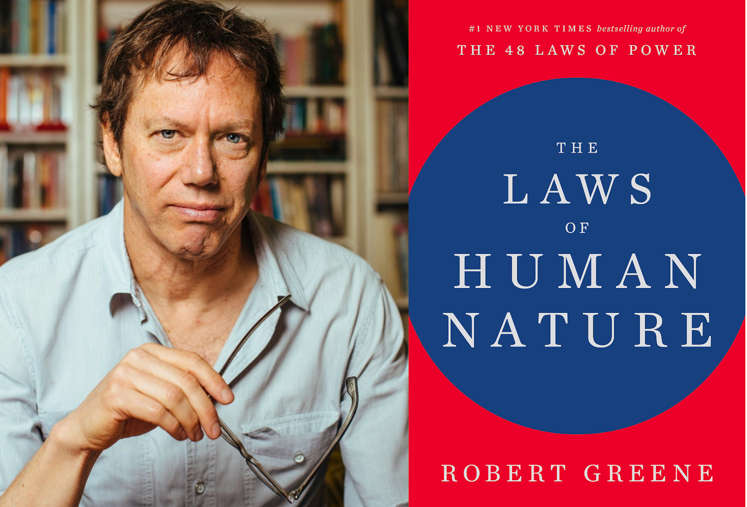The Laws Of Human Nature is Robert Greene’s latest attempt to demystify human motivation, behaviour and interaction. It’s good stuff. He’s a popular but controversial author for a reason; his previous work “The 48 Laws of Power” was considered so dangerously effective that it was banned from several U.S. prison libraries.
In this book, Greene adopts a more holistic view than in the past. His aim is for us to see ourselves as we truly are so that we acknowledge and overcome our shortcomings. His critics will still be able to pinpoint his Machiavellian tendencies- he occasionally instructs readers on how to manipulate people. This can make for some uncomfortable moments. However, if you get past the discomfort, you can use the information to understand how other people operate and how to resist their manipulation tactics.
“The Laws of Human Nature” is a fascinating and thought-provoking read that is time well-spent. To truly get your money’s worth however, you need to be able to engage in the deep self-reflection and self-honesty that the book demands of you. As Greene himself would tell you, most people would find this too painful to do.
Top 3 Things this Book Teaches Us To Unknow
- We are not anywhere as rational, good or well-intentioned as we would like ourselves and others to believe. Those moments where we think or behave like an a**hole are not a deviation from our normal personality. They are a core part of us; our “shadow side”. Rather than suppressing our shadow side, we need to work on acknowledging and integrating healthily into our “public-facing” personality.
- We don’t like to think negatively about the people we love and admire the most. However, even they have their shadow sides. Instead of judging people for their faults, we need to start engaging in deep observation to understand what’s driving their behaviour instead. Once we understand their motivations, we can learn how to better accept or tolerate their bad behaviour.
- Trying to avoid thoughts of death, or suppressing the fear of ourselves or our loved ones dying causes us a lot of harm. Instead, we need to embrace the knowledge that we and everyone we love will die one day. This reminds us that life is short and spurs us to achieve what we want in the limited time we have.
Who Should Read It
- Anyone who wants to understand themselves and others better
- Anyone who is on a journey of self-growth
Who Should Not Read It
- Anyone whose main source of truth is an academic journal. Greene makes use of anecdotes rather than contemporary psychological research. Those that need solid evidence to be convinced will be tempted to dismiss this book as pseudo-scientific drivel.
- Anyone who wants to remain optimistic about people. Greene writes with a degree of cynicism about humanity that can be quite jarring at times.

